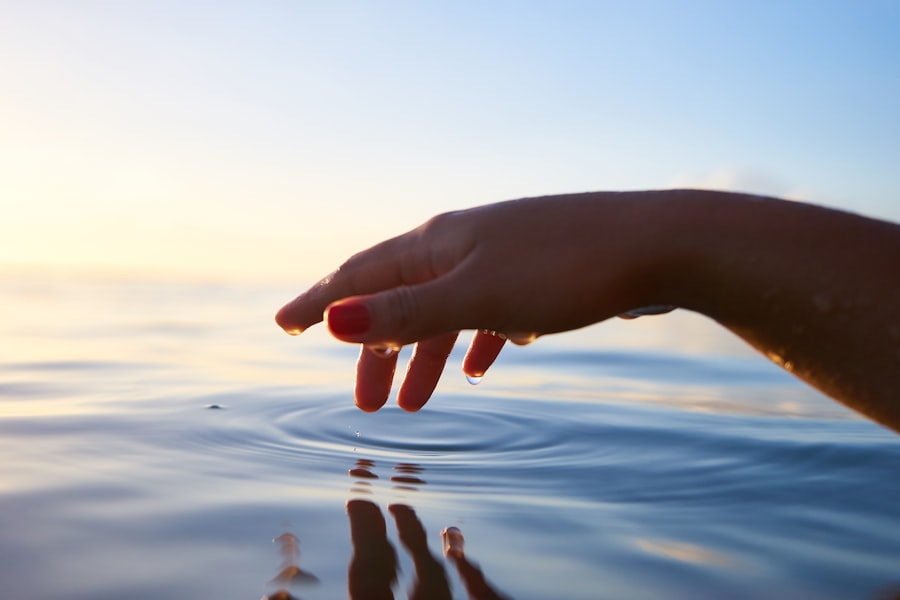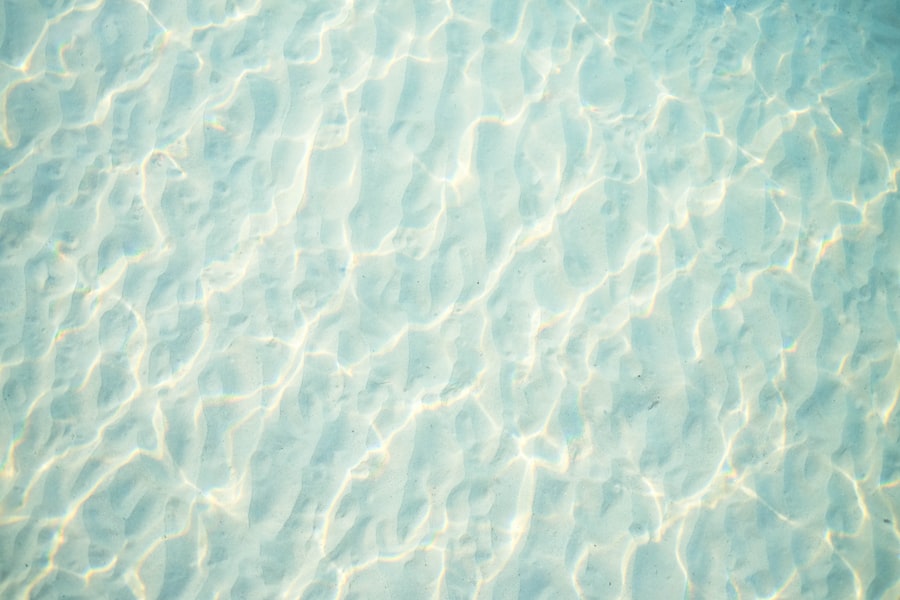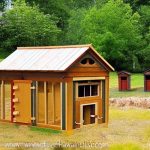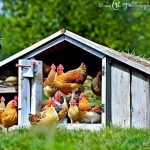Maintaining unfrozen water for backyard chickens during cold weather is crucial for their health and well-being. Frozen water poses significant risks to chickens, including dehydration, which can result in decreased egg production, poor feather quality, and potentially death in severe cases. Chickens may also consume snow or ice when water is unavailable, potentially leading to hypothermia due to lowered body temperature.
Lack of access to water can also cause behavioral issues in chickens. Stress and agitation from water deprivation may lead to pecking and aggressive behavior within the flock, potentially causing injuries and compromising overall flock health. These risks underscore the importance of ensuring chickens have constant access to unfrozen water, particularly during winter months.
Chicken owners must be aware of these potential problems and take proactive measures to prevent water from freezing. Implementing appropriate strategies to maintain liquid water for chickens is essential for their health, productivity, and overall welfare in cold weather conditions.
Table of Contents
- 1 Choosing the Right Watering System for Cold Weather
- 2 Insulating and Heating Water Containers
- 3 Implementing Regular Water Checks and Refills
- 4 Utilizing Natural Methods to Prevent Freezing
- 5 Considering Alternative Water Sources
- 6 Monitoring and Adjusting for Changing Weather Conditions
- 7 FAQs
- 7.1 What are some methods to keep backyard chickens’ water from freezing?
- 7.2 What is a heated waterer and how does it work?
- 7.3 How can water containers be insulated to prevent freezing?
- 7.4 What are heated bases and how do they help prevent water from freezing?
- 7.5 Is it safe to add warm water to the chickens’ waterers to prevent freezing?
Key Takeaways
- Frozen water can pose serious risks to backyard chickens, including dehydration and decreased egg production.
- Choosing the right watering system for cold weather is crucial to ensure that chickens have access to unfrozen water.
- Insulating and heating water containers can help prevent water from freezing in cold temperatures.
- Implementing regular water checks and refills is essential to ensure that chickens have access to clean and unfrozen water.
- Utilizing natural methods, such as adding salt or floating objects, can help prevent water from freezing in cold weather.
Choosing the Right Watering System for Cold Weather
Heated Waterers: A Popular Choice
Heated waterers are a popular choice among chicken owners, specifically designed to prevent water from freezing in cold temperatures. These waterers typically feature a built-in heating element that maintains a constant water temperature, ensuring that chickens always have access to unfrozen water.
Insulated Waterers: A Cost-Effective Alternative
Insulated waterers are another option, designed to retain heat and prevent water from freezing for longer periods. These are a good choice for chicken owners who may not have access to electricity in their coop or run.
Heated Bases and Pads: A Versatile Solution
In addition to heated and insulated waterers, some chicken owners opt for heated bases or pads underneath traditional waterers to prevent freezing. These bases provide a constant source of heat from below, keeping the water from freezing. It’s essential for chicken owners to carefully consider their specific needs and climate when choosing a watering system for cold weather, weighing the advantages and disadvantages of each option before making a decision.
Insulating and Heating Water Containers

Insulating and heating water containers is an important step in preventing frozen water for backyard chickens. There are several methods that chicken owners can use to insulate and heat their water containers. One common method is to wrap the water container in insulation such as foam or bubble wrap to help retain heat and prevent freezing.
Additionally, using a specially designed water heater or de-icer can also be effective in preventing water from freezing in cold temperatures. These devices are designed to keep the water at a constant temperature, ensuring that chickens always have access to unfrozen water. Another method for insulating and heating water containers is to place them in a sheltered area, such as inside the coop or run, where they are less exposed to the elements.
This can help prevent the water from freezing as quickly as it would if it were left out in the open. Additionally, some chicken owners may choose to use heated bases or pads underneath their water containers to provide a constant source of heat from below. It’s important for chicken owners to carefully consider their specific needs and the climate in which they live when choosing a method for insulating and heating their water containers.
Implementing Regular Water Checks and Refills
Implementing regular water checks and refills is essential for ensuring that backyard chickens have access to unfrozen water at all times. In cold weather, it’s important for chicken owners to check their water containers frequently throughout the day to ensure that the water has not frozen. If the water has frozen, it should be replaced with fresh, unfrozen water immediately.
Additionally, chicken owners should also check for any debris or contaminants in the water that could potentially harm their chickens. Furthermore, it’s important for chicken owners to regularly clean and sanitize their water containers to prevent the buildup of bacteria and algae, which can be harmful to chickens if consumed. By implementing regular water checks and refills, chicken owners can ensure that their chickens have access to clean, unfrozen water at all times, which is essential for their health and well-being.
Utilizing Natural Methods to Prevent Freezing
In addition to using insulated and heated water containers, chicken owners can also utilize natural methods to prevent freezing. One effective natural method is to use black containers for holding water. Black absorbs heat from the sun more effectively than other colors, which can help prevent the water from freezing as quickly in cold temperatures.
Additionally, placing the water containers in a sunny area can also help prevent freezing by taking advantage of the natural warmth from the sun. Another natural method for preventing freezing is to use floating objects in the water containers, such as ping pong balls or floating heaters. These objects create movement in the water, which can help prevent it from freezing as quickly.
Additionally, adding a small amount of apple cider vinegar to the water can also help prevent freezing by lowering the freezing point of the water. By utilizing these natural methods, chicken owners can help prevent their water containers from freezing without relying solely on electricity or insulation.
Considering Alternative Water Sources

Warm Water as an Alternative
In some cases, it may be necessary for chicken owners to consider alternative water sources during cold weather. One option is to provide warm or hot water to chickens multiple times throughout the day. This can help ensure that they have access to unfrozen water even if their main water source has frozen over.
Additional Hydration Methods
Additionally, some chicken owners may choose to provide warm soups or oatmeal to their chickens as a way of providing additional hydration during cold weather.
Snow or Ice Melt as an Alternative
Another alternative water source is snow or ice melt from a safe source. However, it’s important for chicken owners to be cautious when using snow or ice melt as a water source, as it may contain contaminants or chemicals that could be harmful to chickens if consumed. If using snow or ice melt as an alternative water source, it’s important for chicken owners to carefully monitor and ensure its safety before allowing their chickens to drink from it.
Monitoring and Adjusting for Changing Weather Conditions
Finally, it’s important for chicken owners to monitor and adjust their watering systems for changing weather conditions. As temperatures fluctuate throughout the winter months, it’s important for chicken owners to regularly check their watering systems and make any necessary adjustments to prevent freezing. This may include increasing insulation, adding additional heat sources, or changing the location of the water containers to a more sheltered area.
Additionally, chicken owners should also be prepared to provide additional hydration to their chickens during extreme cold weather conditions. This may involve providing warm or hot water multiple times throughout the day or utilizing alternative water sources as needed. By monitoring and adjusting their watering systems for changing weather conditions, chicken owners can ensure that their chickens have access to clean, unfrozen water at all times, which is essential for their health and well-being.
In conclusion, preventing frozen water for backyard chickens is essential for ensuring their health and well-being during cold weather. By understanding the risks associated with frozen water, choosing the right watering system, insulating and heating water containers, implementing regular water checks and refills, utilizing natural methods, considering alternative water sources, and monitoring and adjusting for changing weather conditions, chicken owners can effectively prevent frozen water and ensure that their chickens have access to clean, unfrozen water at all times. Taking proactive measures to prevent frozen water is crucial for maintaining the health and productivity of backyard chickens throughout the winter months.
If you’re looking for tips on keeping backyard chickens water from freezing, you might also be interested in learning about the best design for a farmhouse chicken coop. Check out this article for some helpful insights on creating a cozy and functional space for your feathered friends.
FAQs
What are some methods to keep backyard chickens’ water from freezing?
Some methods to keep backyard chickens’ water from freezing include using heated waterers, insulating water containers, using heated bases, and adding warm water to the waterers regularly.
What is a heated waterer and how does it work?
A heated waterer is a water container designed to prevent water from freezing by using a built-in heating element. The heating element is usually thermostatically controlled to turn on when the temperature drops below freezing, keeping the water at a liquid state.
How can water containers be insulated to prevent freezing?
Water containers can be insulated by wrapping them with insulating materials such as foam or using specially designed insulating jackets. This helps to retain the heat from the water and prevent it from freezing in cold temperatures.
What are heated bases and how do they help prevent water from freezing?
Heated bases are platforms or stands with built-in heating elements that can be placed under water containers. The heat from the base helps to keep the water above freezing temperature, preventing it from freezing.
Is it safe to add warm water to the chickens’ waterers to prevent freezing?
Adding warm water to the chickens’ waterers can help prevent freezing, but it should be done carefully to avoid causing thermal shock to the chickens. It’s important to use water that is not too hot and to monitor the temperature of the water to ensure it doesn’t become too cold too quickly.
Meet Walter, the feathered-friend fanatic of Florida! Nestled in the sunshine state, Walter struts through life with his feathered companions, clucking his way to happiness. With a coop that’s fancier than a five-star hotel, he’s the Don Juan of the chicken world. When he’s not teaching his hens to do the cha-cha, you’ll find him in a heated debate with his prized rooster, Sir Clucks-a-Lot. Walter’s poultry passion is no yolk; he’s the sunny-side-up guy you never knew you needed in your flock of friends!







